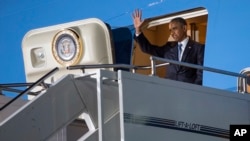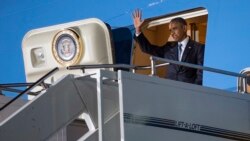Democracy is critical to Africa’s future. “Africans like people everywhere,” said President Barack Obama in a speech at the African Union headquarters in Ethiopia, “deserve the dignity of being in control of their own lives.”
The key aspects of real democracy include free and fair elections, freedom of speech and the press, and freedom of assembly. “These rights,” said President Obama, “are universal. They’re written into African constitutions.”
Yet at this very moment, these same freedoms are denied to many Africans. Democracy is not just formal elections. Indeed, “when journalists are put behind bars for doing their jobs,” said President Obama, “or activists are threatened as governments crack down on civil society, then you may have democracy in name, but not in substance. And I’m convinced that nations cannot realize the full promise of independence until they fully protect the rights of their people.”
The bottom line is that when citizens cannot exercise their rights, said President Obama, the world has a responsibility to speak out. And America will, even when it’s sometimes directed at its friends.
Another critical component of democracy is abiding by constitutional term limits. “When a leader tries to change the rules in the middle of the game just to stay in office,” said President Obama, “it risks instability and strife, as we have seen in Burundi. And this is often just the first step down a perilous path.” Nelson Mandela and George Washington forged lasting legacies not only because of what they did in office, but also because they were willing to leave office and transfer power peacefully.
The United States and its African partners together must raise their voices when universal rights in Africa are being denied. Africans have an equal right to fundamental freedoms. “That’s not just a Western idea,” said President Obama, “it’s a human idea.”






